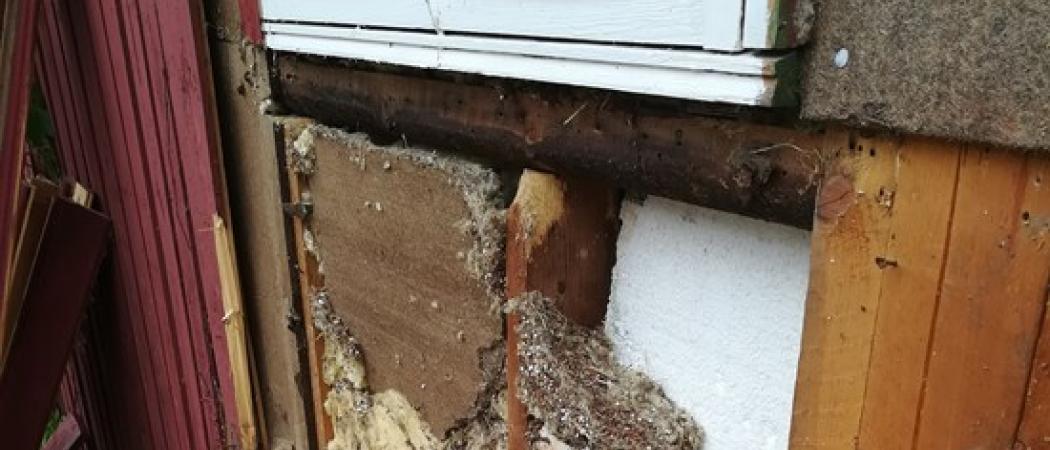
The project proposal RAPID U has been granted significant funding both by Business Finland (former Tekes) and the German Federal Ministry for Economic Affairs and Energy (BMWi). RAPID U is dedicated to both on-site measurements of building constructions’ U-values, using a novel measurement principle, and to the market deployment of U-value meters. Further support for the project comes from the Foundation of Technical Development and Research (TUF), the Finnish Ministry of Environment, The Finnish Real Estate Federation (Kiinteistöliitto) as well as The Finnish Association of Building Owners and Construction Clients (RakLi).
Precise measurements, rather than calculations, are necessary when defining the true insulation performance of any building element since it is practically impossible to know how the building was initially constructed and how extensive the wetting of the wall materials is. This means that the success of the RAPID U proposal will be of great benefit for the real estate sector regarding risks associated to thermal retrofitting and on-site quality control. True U-values are fundamental requirement for reality-based energy performance certificates, precise planning of thermal retrofitting, quality control of thermal insulation and detection of moisture. When speaking about rapidness of measurements for us it means around one hour.
RAPID U is co-ordinated by the inventor of the instruments, Arcada University of Applied Sciences, Helsinki, Finland. Other consortium partners are Tampere University of Technology/Building Physics (TUT), Raksystems Insinööritoimisto Oy and FIW München, that will coordinate the research activities in Germany. The research and dissemination partner is Deutsches Energieberater-Netzwerk DEN e.V., the German association of certified energy consultants. The overall budget of the project is around 1.5 million euro and the project duration is two years.
Accurate but fast U-value measurements are already possible today, but are only offered by a very small group of experienced experts and bound to unnecessarily limited weather conditions. Since our goal is extensive deployment of U-value metering services, both increasing the number of skilful experts who can provide these services is just as necessary as maximizing the measurement hours available during each heating and thus measurement season. Therefore, further work on appropriate training measures and the study of the influence of weather conditions is necessary.
Major challenges for fast U-value measurements in existing buildings are various wall constructions found in buildings from different time periods – ranging from hundreds of years old to new ones. Therefore, the main goal of the RAPID U project is measurement limitations concerning thermal inertia of the most common types of wall constructions and varying outdoor temperature. In addition, moisture and anisotropic building elements require likewise detailed guidelines. Possible limitations of the procedure are subject of investigations by simulations (TUT) and real measurements at large-scale testing facilities (FIW). Comparisons of RAPID U results with long-term U-value measurements using heat-flux-meter sensors on site will be used for validation. Based on the data and conclusions of this project the RAPID U consortium will record the procedure for experts conducting measurements in a detailed manual, stating boundary conditions for high-precision Rapid U-value metering.
“But measurement expertise can’t be based on reading manuals and instructions alone, and therefore we’ll allocate significant resources for eligibility-giving training”, says Dr. Mikael Paronen, who is the co-inventor of the RAPID U-value meter. “Therefore the existing Finnish Rapid U-value meter training contents will be adapted for German markets and updated with the new information on thermal inertia. This will be followed by ongoing training given in German by DEN eV. All the activities in the project are dedicated to the successful deployment of RAPID U-value metering, and to practicalities, such as the fine tuning of instrument characteristics allowing easier usage, development of in-field data collection principles and reporting systems,” Dr. Paronen says.





 A unique international forum for public research organisations and companies to connect their external engagement with strategic interests around their R&D system.
A unique international forum for public research organisations and companies to connect their external engagement with strategic interests around their R&D system.